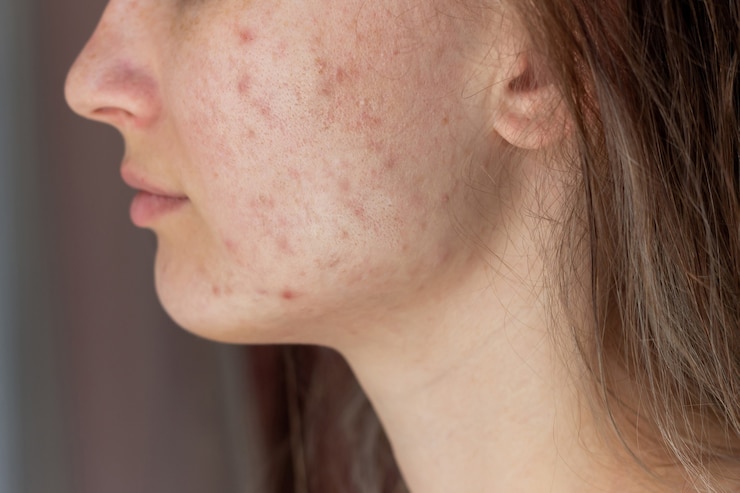Acne is more than just a teenage skin concern—it’s a persistent skin condition that can leave behind emotional and physical scars long after the blemishes disappear. In recent years, Acne Scar Treatment in Dubai has emerged as a hot topic due to its innovative techniques and impressive results. Dermatological experts in the region have access to cutting-edge technology and specialized knowledge, offering patients more effective solutions than ever before.
Understanding Acne Scars: More Than Skin Deep
To appreciate the breakthroughs in treatment, it’s crucial to understand the nature of acne scars. There are different types of scars caused by acne, each requiring specific treatment modalities. The most common types include:
-
Atrophic scars: These are indented scars caused by a loss of collagen, such as icepick, boxcar, and rolling scars.
-
Hypertrophic scars: Raised scars that result from an overproduction of collagen during healing.
-
Post-inflammatory hyperpigmentation (PIH): Though not a true scar, PIH is a dark discoloration that can last for months after a breakout.
Personalized Solutions: One Size Doesn’t Fit All
Gone are the days when a single facial or topical cream was expected to treat every kind of acne scar. Modern acne scar treatment is highly customized. Dermatologists now use a combination of techniques tailored to the specific scar type, skin tone, and overall skin health of the individual. This personalization is what makes the treatment so effective and revolutionary.
Laser Technology: Precision Meets Power
One of the most game-changing tools in acne scar treatment is laser technology. Devices like fractional CO2 lasers and erbium lasers have changed the landscape by offering targeted skin resurfacing with minimal downtime. These lasers work by creating microscopic injuries in the skin, which in turn stimulates collagen production and encourages skin renewal.
Microneedling and RF Microneedling: The Collagen Boosters
Microneedling has become a cornerstone in acne scar treatment. Creating controlled micro-injuries in the skin triggers the body’s natural healing process and boosts collagen production. Over time, the skin becomes firmer, smoother, and more youthful.
Chemical Peels: Renewing the Surface
Chemical peels might sound old-school compared to lasers and microneedling, but they remain a vital part of acne scar treatment. These peels work by exfoliating the top layers of the skin, promoting cell turnover, and reducing pigmentation. For surface-level scars and post-inflammatory hyperpigmentation, peels can be surprisingly effective.
Dermal Fillers: Instant Gratification
While most acne scar treatments focus on long-term collagen stimulation, dermal fillers provide near-instant results. These fillers, often made of hyaluronic acid, are injected into depressed scars to lift and smooth the skin’s surface. Though temporary, fillers can dramatically improve the appearance of boxcar and rolling scars.
Non-Ablative Radiofrequency and Ultrasound: Gentle Yet Effective
Non-invasive technologies like radiofrequency (RF) and high-intensity focused ultrasound (HIFU) are also gaining popularity. These treatments work by heating the deeper layers of the skin, stimulating collagen without damaging the surface. They’re particularly useful for patients who want subtle, gradual improvements without downtime.
Psychological Impact: Beyond Aesthetic Improvements
What truly makes acne scar treatment a game-changer is its psychological impact. Acne scars often carry emotional baggage—reminders of years spent battling breakouts, social anxiety, and lowered self-esteem. When a person sees their scars fading, the emotional relief can be immense.
The Role of Preventive Care and Maintenance
Another reason acne scar treatment is so revolutionary is that it doesn’t just stop with scar removal. Most modern approaches also focus on prevention and skin maintenance. Patients are educated on how to prevent further breakouts, which in turn prevents new scars from forming. Long-term skincare plans, combined with occasional touch-up treatments, help maintain results and improve overall skin health.
Empowering Patients Through Education
With so many advanced options now available, another game-changing aspect is the shift toward patient empowerment. Dermatologists today take the time to educate patients about their skin, scar types, and available treatments. This creates a more collaborative treatment journey, where the patient feels involved, informed, and in control.
Final Thoughts
Acne scar treatment has come a long way from the days of relying solely on creams and hope. Today’s methods are not only science-backed and highly effective but also deeply empowering. The combination of cutting-edge technology, personalized care, and psychological transformation is what makes acne scar treatment a true game-changer.



